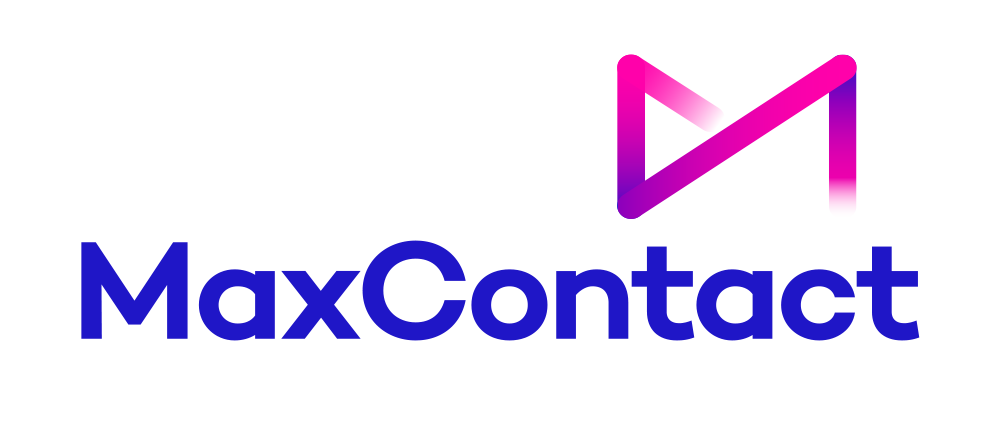AMD (Answer Machine Detection)
Ever get frustrated when your calls go straight to voicemail, especially during a high-volume campaign? Imagine having a tool that instantly tells you whether you're talking to a real person or a machine.
When running large outbound campaigns, every second counts. One of the biggest challenges? Reaching live people instead of being greeted by voicemails. Research from Cloud Talk found that 80% of outbound calls reach voicemail
In this guide, we’ll break down exactly what Answer Machine Detection is, how it works, and why it might be the tool you need for your outbound calling operations.
What is Answer Machine Detection?
AMD (Answering Machine Detection) is a system that identifies and filters out answering machines from live calls in call centres.
Answer Machine Detection (AMD) is used in call centres to identify whether a call has been answered by a human or an answering machine.
When the system detects a machine, it can leave a pre-recorded message or end the call, based on your settings.
This is ideal, as it allows agents to move on to the next call easily without any downtime. The aim of AMD is to improve communication and optimise agent call time.
How Does Answer Machine Detection Work?
Now that you have a better understanding of what answer machine detection is, let's discuss how it works.
- Call Initiation: The AMD system starts by placing an outbound call.
- Tone Detection: It listens for the end of the ringback tone and the start of a response.
- Speech Analysis: In the first few seconds of the call, the system analyses speech patterns to determine whether the voice belongs to a human or a machine.
- Decision Making: Using built-in algorithms, the system decides how to handle the call.
- If a human answers, the call is routed to a live agent or an IVR (Interactive Voice Response) system.
- If it detects an answering machine, it can either leave a pre-recorded voicemail or hang up, depending on your call centre’s setup.
The AMD system is based on three main principles:
- Detecting a live caller saying something along the lines of 'hello...'
- Detecting background noise, such as hissing or rumbling.
- Detecting a long sentence such as 'Hello, I'm sorry but I can't come to the phone right now...'
How Does AMD Differentiate Human Voices From Automated Recordings?
AMD is ideal for outbound calls and is used to differentiate human interactions from automated recordings, but how does this system do this? It's done through a range of methods, such as:
1. Audio Analysis
This is when the system analyses the characteristics of the call. It does this by listening to pitch modulations, tonal properties and frequency patterns.
2. Algorithmic Processing
Answer machine detection works by using reliable algorithms that have been trained on datasets of recorded voicemails and real-time human responses so that it can make an accurate detection.
3. Voice Analytics
AMD systems utilise voice analytics to assess natural voice, vocal frequencies and specific patterns in recorded messages.
4. Real-time Assessment
AMD begins its real-time analysis when the call is initiated.
5. Silence Detection
Answer machine-detection systems work by analysing the first few seconds of a call to identify certain audio patterns and moments of silence.
6. Customisable
AMD systems can be customised to meet the needs of different call centres. Parameters, such as machine detection timeout, can be adjusted accordingly.
Answer machine detection systems use these methods to effectively differentiate between human interactions and automated recordings. This is ideal for outbound call centres as it can help to improve efficiency.
What is Answering Machine Detection Used for?
AMD is mainly used in telephony systems to improve the effectiveness of automated and semi-automated calling operations. Here are some of the situations AMD can come in handy:
Call Centres
This system makes sure that humans are connected to live respondents to save time and resources.
Automated Messaging Services
This system allows services to detect answer machines to make sure that the message is delivered on time, even if the recipient is unavailable.
Outbound Sales and Marketing
Sales teams can use AMD to focus on live calls rather than spending time on calls answered by machines. This is ideal as it maximises agent efficiency.
Appointment Reminders
Healthcare providers, salons, and service-based businesses use AMD to ensure appointment reminders are delivered to a real person or left as a voicemail when necessary, improving attendance rates and reducing no-shows.
Debt Collection Agencies
Agencies can prioritise human interactions for sensitive calls while still ensuring that voicemail messages are left when a live conversation isn’t possible.
Political Campaigns and Surveys
Campaign teams use AMD to quickly connect with live voters or participants for surveys, helping to gather real-time opinions without wasting time on unanswered or machine-answered calls.
What Are the Benefits of an AMD System?
An answering machine detection system offers a wide range of benefits that can improve the efficiency and effectiveness of telephone operations. Here are a few to consider…
Cuts Down on Wasted Time
AMD quickly picks up when a call hits voicemail, so your team isn’t stuck listening to greetings. That means shorter calls, less downtime, and lower costs.
Saves Agent Resources
No one wants agents wasting time on dead-end calls. With AMD, they can focus on real conversations that matter.
Improves Customer Experience
Even if someone can’t answer the phone, AMD makes sure they still get your message, so you’re staying helpful and consistent without being intrusive.
Fewer Repeat Calls
Tired of calling the same number over and over? AMD helps avoid that by detecting voicemails upfront, so you're not bugging people with multiple attempts.
Boosts Your Reach
Running a sales or marketing campaign? AMD helps you talk to more real people, making your campaigns more effective and giving your conversion rates a nice boost.
Best Practices for Configuring AMD
To get the most value from Answer Machine Detection, follow these best practices:
1. Balance Accuracy with Call Speed
Be careful with your detection settings; if they're too strict, you might mistake real people for voicemails. Too relaxed, and your agents could end up talking to machines.
MaxContact’s Top Tip: Test different thresholds and monitor outcomes to find the right balance for your campaign goals.
2. Use Pre-Recorded Messages
Prepare personalised voicemail messages that match your brand tone and campaign intent.
3. Regularly Monitor Performance
Track metrics like:
- Live answer rate
- Detection error rate
- Call abandonment rate
Use this data to tweak AMD settings and improve performance over time.
4. Integrate with Your Dialer or CRM
Make sure your AMD system integrates with your dialer or CRM platform. This allows for better call routing, contact handling, and accurate data tracking. For optimal performance in your contact centre, consider exploring progressive dialer or preview dialer to further streamline your outbound calling process.
5. Test Across Different Campaign Types
Different campaigns (sales, customer service, surveys) may require different AMD configurations. Don’t assume one setting fits all; test and adapt per campaign type and audience.
6. Train Agents to Handle Transitions
Occasionally, AMD may transfer calls with a slight delay. Train agents to respond naturally to maintain call quality and avoid awkward interactions. For the best performance across your call centre, integrating effective workforce management solutions can help with training, scheduling, and ensuring agents are always ready for transitions.
Improve your Call Centre Operations with MaxContact
While AMD alone offers clear value, integrating it with your contact centre data will help you deliver the best experience to your customers. Analysing call data allows you to refine campaign strategies and optimise AMD effectiveness. Ready to see how MaxContact’s Answer Machine Detection can change your outbound campaigns? Book a demo.
.png)






